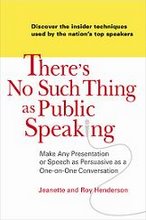What an amazing event! He stood before a waiting crowd, who practically quivered in anticipation of his first words. When at last he began, he started out softly, personably, finding common ground is their mutual plight of a useless government and a country heading for disaster. Gradually, his words moved faster, more emphatically, urging the crowd forward, helping them to imagine a future of hope, change, the recovery of past greatness, and the expansion of their nation’s influence in the world.
He hit every hot button along the way: the diminishment of the reputation of the country in the eyes of the rest of the world by a government that’s lost its way; the folly of going to war unnecessarily and the destruction it caused at home, the deterioration of the middle class, and the collapse of the economy under the poor judgment of the current leaders.
Then he turns to the future, and what is necessary to change course. He says that, if elected, his new government will be one that "will regard it as its first and foremost duty to revive in the nation the spirit of unity and co-operation. It will preserve and defend those basic principles on which our nation has been built." He outlines plans to reorganize commerce and trade, to reduce unemployment, to take care of the sick and aged, to encourage the entrepreneur, support the armed forces, all along the way using "unity as our tool."
It is exactly what the audience wants to hear. They are uncontrollably swept up with enthusiasm, screaming and cheering at the vividness of the future he is promising, like a phoenix rising from the ashes of a failed state. By the time he nears the end of his speech, the crowd is mesmerized, waiting with breath abated for his final words to ring so that they may erupt in the wave of support they can barely keep contained. At last, his final words come. "May God Almighty give our work His blessing, strengthen our purpose, and endow us with wisdom and the trust of our people, for we are fighting not for ourselves but for Germany. "
This was Adolph Hitler’s Proclamation to the Nation speech of February 1, 1933 after he was named Chancellor of Germany. If you thought it sounded like somebody else, you’re not alone.
The point here is not that I am comparing Hitler to any contemporary politician. The point is to insure that we all understand that the art of oratory is a learned skill that can be mastered. Successful speeches invariably contain the same elements, the same emotions, the same means of getting an audience charged up, regarding of what the actual specific issues are. Yes, good words can be used inspire us, but they can be used to do bad things, too.
Many people have often scratched their heads and wondered how the German people could have let themselves be duped by Hitler. We must recognize, however, that a master orator can mesmerize any audience on any subject at any time, and that under the circumstances, their response was quite natural. Hitler was not the first to accomplish this, nor, unfortunately, will he be last. But no matter how many times we say "Never again," all bets are off when a Master Orator seizes the opportunity to whip a crowd into a frenzy that could propel him to great power. Caveat emptor all great orators.
Saturday, February 23, 2008
Subscribe to:
Posts (Atom)

